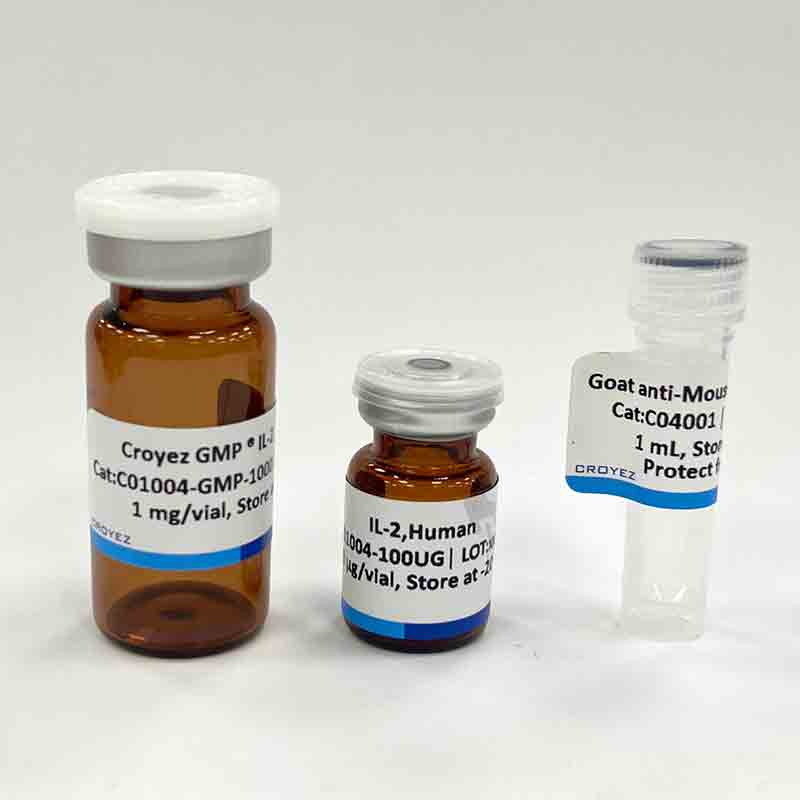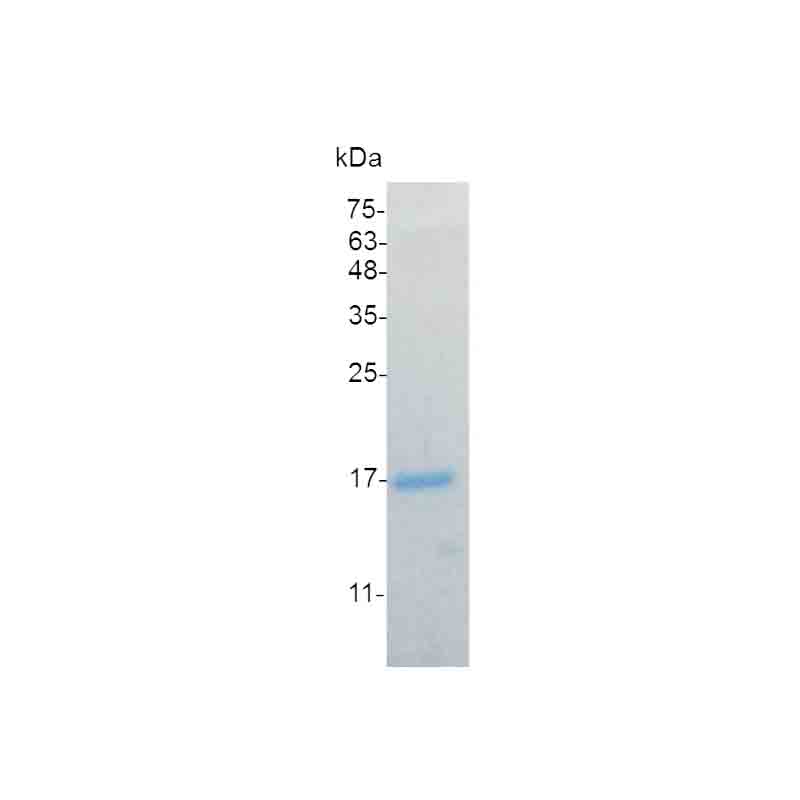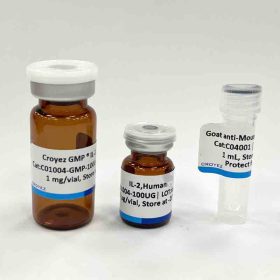FGF2, also known as a basic fibroblast growth factor (bFGF) and FGF-β, is a growth factor and signaling protein encoded by the FGF2 gene. FGF2 has been shown in preliminary animal studies to protect the heart from injury associated with a heart attack, reducing tissue death and promoting improved function after reperfusion. FGF-2 (bFGF) are also involved in a variety of biological processes, including embryonic development, morphogenesis, tissue repair, tumor growth, and invasion. Additionally, FGF-2 (bFGF) is frequently used for a critical component of cell culture medium, e.g., human embryonic stem cell culture medium, serum-free culture systems.
Sequence:
AAGSITTLPALPEDGGSGAFPPGHFKDPKRLYCKNGGFFLRIHPDGRVDGVREKSDPHIKLQLQAEERGVVSIKGVCANRYLAMKEDGRLLAS
KCVTDECFFFERLESNNYNTYRSRKYSSWYVALKRTGQYKLGPKTGPGQKAILFLPMSAKS with polyhistidine tag at the N-terminus
Source:
Escherichia coli
Endotoxin Test:
<0.1 EU per 1 μg of the protein by the LAL method.
Activity:
Measure by its ability to induce proliferation in 3T3 cells. The ED50 for this effect is <2 ng/mL.
Purity:
>98% as determined by SDS-PAGE. Ni-NTA chromatography
Formulation:
The protein was lyophilized from a solution containing 0.01% sarkosyl in 1X PBS, pH 7.4.
Reconstitution:
It is recommended to reconstitute the lyophilized protein in sterile H2O to a concentration not less than 100 μg/mL and incubate the stock solution for at least 20 min to ensure sufficient re-dissolved.
Storage:
Lyophilized protein should be stored at -20°C. Upon reconstitution, protein aliquots should be stored at -20°C or -80°C.
Note:
Please use within two weeks after protein reconstitution.





